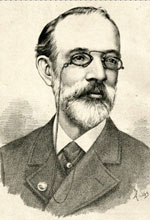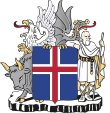
Federal elections were held in Germany on 12 January 1912. Although the Social Democratic Party (SPD) had received the most votes in every election since 1890, it had never won the most seats, and in the 1907 elections, it had won fewer than half the seats won by the Centre Party despite receiving over a million more votes. However, the 1912 elections saw the SPD retain its position as the most voted-for party and become the largest party in the Reichstag, winning 110 of the 397 seats.
Parliamentary elections were held in Greece on 19 August 1928. The result was a victory for the Liberal Party, which won 178 of the 250 seats.

Parliamentary elections were held in Greece on 5 March 1950. The People's Party emerged as the largest party in Parliament, winning 62 of the 250 seats.
Parliamentary elections were held in Iceland on 8 May 1999. The Independence Party remained the largest party in the Althing, winning 26 of the 63 seats. The coalition government of the Independence Party and Progressive Party remained in office, with Davíð Oddsson continuing as Prime Minister.
Early parliamentary elections were held in Iceland on 25 and 26 October 1959. Following the electoral reforms made after the June elections, the Independence Party won 16 of the 40 seats in the Lower House of the Althing.
Parliamentary elections were held in Iceland on 30 June 1974. The Independence Party remained the largest party in the Lower House of the Althing, winning 17 of the 40 seats. They formed a coalition with the Progressive Party and Independence Party leader Geir Hallgrímsson was elected Prime Minister.

General elections were held in Liechtenstein on 1 February 1970. The Patriotic Union won eight of the 15 seats in the Landtag, the first time it had held a majority since its formation in 1936. However, it continued the coalition government with the Progressive Citizens' Party, which had existed 1938. Voter turnout was 95%, although only male citizens were allowed to vote.

Parliamentary elections were held in Bulgaria on 4 September 1911. The result was a victory for the People's Party–Progressive Liberal Party alliance, which won 190 of the 213 seats. Voter turnout was 47%.
Early parliamentary elections were held in Iceland on 18 and 19 October 1942. They were held after reforms were made to the electoral system following the July elections. The Independence Party emerged as the largest party in the Lower House of the Althing, winning 13 of the 35 seats.

General elections were held in Liechtenstein on 11 March 1918, with a second round on 18 March. They were the first elections held in the country contested by political parties, as the Christian-Social People's Party and Progressive Citizens' Party had been founded that year. The Progressive Citizens' Party emerged as the largest in the Landtag, winning seven of the 12 elected seats.

General elections were held in Liechtenstein in February 1936. The elections took place in two rounds; in the first round on 3 February each of the ten municipalities with more than 300 inhabitants elected one member of the Landtag. The second round was held on 16 February in which the remaining five Landtag members were elected in a national vote. The result was a victory for the ruling Progressive Citizens' Party, which won 11 of the 15 seats.

General elections were held in Liechtenstein on 29 April 1945. Following the "silent elections" of 1939, they were the first to use the new proportional representation system. The Progressive Citizens' Party won eight of the 15 seats in the Landtag, but remained in coalition with the Patriotic Union.

General elections were held in Liechtenstein on 6 February 1949. The Progressive Citizens' Party won eight of the 15 seats in the Landtag, but remained in coalition with the Patriotic Union.

General elections were held in Liechtenstein on 15 February 1953. The Progressive Citizens' Party won eight of the 15 seats in the Landtag, but remained in coalition with the Patriotic Union. This was the first and only election contested by the Workers' and Peasants' Party.

General elections were held in Liechtenstein on 25 March 1962. The Progressive Citizens' Party won eight of the 15 seats in the Landtag, but remained in coalition with the Patriotic Union. This was the first election contested by the Christian Social Party.

Parliamentary elections were held in Portugal on 17 November 1895. They were boycotted by the Progressive Party and the Portuguese Republican Party, resulting in the Regeneration Party and a small number of independents winning all the seats.

Parliamentary elections were held in Portugal on 2 May 1897. Boycotted by the Portuguese Republican Party, they resulted in a victory for the Progressive Party, which won 88 seats.

Parliamentary elections were held in Portugal on 26 November 1899. The result was a victory for the Progressive Party, which won 91 seats.

Parliamentary elections were held in Portugal on 12 December 1905. The result was a victory for the Progressive Party, which won 109 seats.

The People's Party was a political party in Bulgaria between 1894 and 1920.











